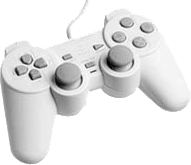Why Sony PS2?
In 2006, the PlayStation 2 passed the first PlayStation as the best-selling console game system of all time with more than 106 million units shipped worldwide. This is more than four times what the Microsoft Xbox and Nintendo GameCube were able to ship. Simultaneously, DVD became firmly established as the home-movie format of choice and going online became a mainstream activity.
So why did the PS2 succeed? What mattered to consumers was that it provided incredible entertainment value for the entire family. While Nintendo focused on its big-name, kid-friendly franchises and the Xbox resonated with the PC-centric acne crowd that love their games violent and bloody, the PS2 had something for everyone. Sports, action, racing, kids' products, karaoke, the EyeToy camera, and, yes, virtual bloodshed—all could be found on the PS2. This was the game system for the masses, which, in its prime years, sold in the very consumer-friendly $200 (RM800) price range.
The challenge Sony faces is that the competition is not sitting still. The goal for Sony is to keep the PlayStation 2 base happy and content for the next several years as they gradually migrate to the PlayStation 3. Microsoft (MSFT) and Nintendo (NTDOY) would like to speed up that migration pattern, not to the PS3 but to the Xbox 360 and the Nintendo Wii.
The key to selling game consoles is good games. The Xbox 360 has built a solid library of software in its first year. With the Wii, Nintendo has almost nowhere to go but up and the system may have potential to appeal to not only the loyal Nintendo base, but also to a more casual adult audience. Meanwhile, developers are just now learning the complexities of writing code to the PS3's Cell processor and its eight SPE processors.
So why did the PS2 succeed? What mattered to consumers was that it provided incredible entertainment value for the entire family. While Nintendo focused on its big-name, kid-friendly franchises and the Xbox resonated with the PC-centric acne crowd that love their games violent and bloody, the PS2 had something for everyone. Sports, action, racing, kids' products, karaoke, the EyeToy camera, and, yes, virtual bloodshed—all could be found on the PS2. This was the game system for the masses, which, in its prime years, sold in the very consumer-friendly $200 (RM800) price range.
The challenge Sony faces is that the competition is not sitting still. The goal for Sony is to keep the PlayStation 2 base happy and content for the next several years as they gradually migrate to the PlayStation 3. Microsoft (MSFT) and Nintendo (NTDOY) would like to speed up that migration pattern, not to the PS3 but to the Xbox 360 and the Nintendo Wii.
The key to selling game consoles is good games. The Xbox 360 has built a solid library of software in its first year. With the Wii, Nintendo has almost nowhere to go but up and the system may have potential to appeal to not only the loyal Nintendo base, but also to a more casual adult audience. Meanwhile, developers are just now learning the complexities of writing code to the PS3's Cell processor and its eight SPE processors.
by David Cole in Business Week


